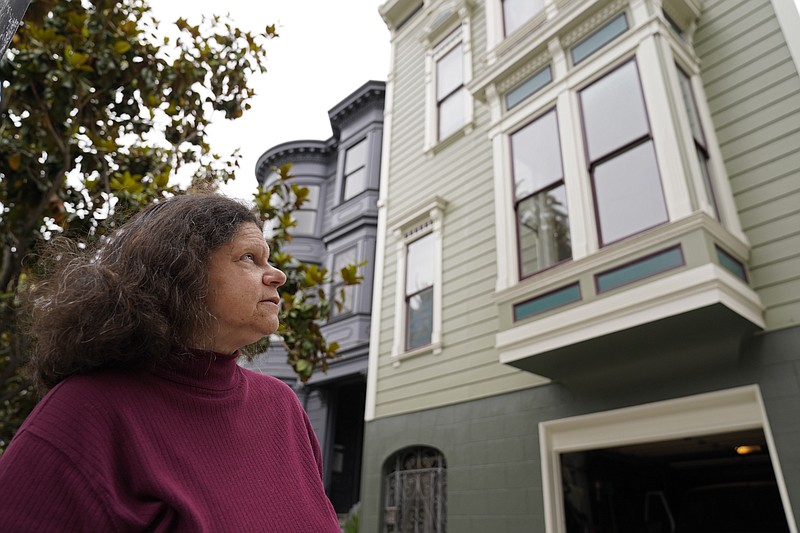Census taker Linda Rothfield's government-issued iPhone kept directing her back to apartments in San Francisco that she already knew were vacant. When she did find apartments that were occupied, she was sometimes turned away because of the pandemic.
"I had a few landlords who said, 'It's covid. You can't come in,'" Rothfield said.
In a national head count turned upside down by natural disasters, political turmoil and a deadly virus, apartment renters proved particularly hard to count last year. That has former census takers and experts worried that the tally failed to account for all of them.
Overlooking people in the nation's 44 million rental homes carries a potentially high price. Because the census helps determine how $1.5 trillion in federal money is spent each year, the lower numbers would mean less government help to pay for schools, roads and medical services in those communities.
Around 36% of homes in the U.S. are occupied by renters, up from 33% during the last census a decade ago.
Under the best of circumstances, renters are among the hardest people to count because they tend to be more transient and are more likely to live below the poverty line. They also tend to be disproportionately people of color, who also are traditionally undercounted in the census, according to The Leadership Conference Education Fund, a civil-rights group.
Incomplete data on the race or ethnic background of renters could also hinder the formation of Black- or Hispanic-majority political districts.
Renters typically have lower self-response rates than homeowners, so the government relies more on census takers knocking on their doors, said Jeri Green, a former senior adviser at the Census Bureau, who served as a consultant to the National Urban League during the 2020 census.
"This is a population that was at risk of being missed prior to covid," Green said. "We know it's a challenge for the Census Bureau to accurately enumerate renters."
During the 2010 census, renters were undercounted by 1.1%, but the rate was higher for some tenants. Black male renters between 30 and 49 were undercounted by 12.2%, and Hispanic male renters between 18 and 29 were undercounted by 8.6%, according to the Leadership Conference Education Fund.
Delays from the pandemic caused the Census Bureau to eliminate a step ahead of the door-knocking phase in which census supervisors meet with building managers or landlords to find out which apartments are occupied so census takers don't waste their time with vacant units, the agency said in a statement.
"We were, however, able to inform the landlords or managers that enumerators would be visiting and asking for their cooperation prior to the start of the operation," the statement said, adding that bureau officials were confident in the work of census takers.
In cases where renters did not respond to questionnaires, or census takers were unable to interview them, the Census Bureau had to use less-reliable methods to count them. Those included using administrative records from the Internal Revenue Service or the Social Security Administration, asking neighbors or postal workers for information or using a last-resort statistical technique.
Some 60% of census supervisors surveyed by the Governmental Accountability Office for a study on 2020 census operations reported that their census takers had difficulties completing caseloads because they were unable to get into apartment buildings.
"The pandemic made communication with the building managers difficult," the GAO said in a report issued in March.
"Specifically (supervisors) told us that enumerators were often turned away from accessing multi-unit buildings because of the pandemic."
Nathan Bean, a census supervisor in Chicago, said that even when he was able to reach property managers by phone last summer, they would often say, "'We aren't going to answer your calls. We aren't going to answer your questions.'"
How much renters were undercounted, if they actually were missed, will not be known until December and early next year with the release of a survey that measures the accuracy of the count.
The Census Bureau already has released 2020 figures used for deciding how many congressional seats each state gets, and those numbers showed how just a few dozen people being counted or overlooked made a big difference. If 89 more people had been tallied, New York would not have lost a congressional seat. If 26 people had been missed in Minnesota, the Gopher State would have lost a seat.
Numbers used for redrawing congressional and legislative districts will not be ready until August.



